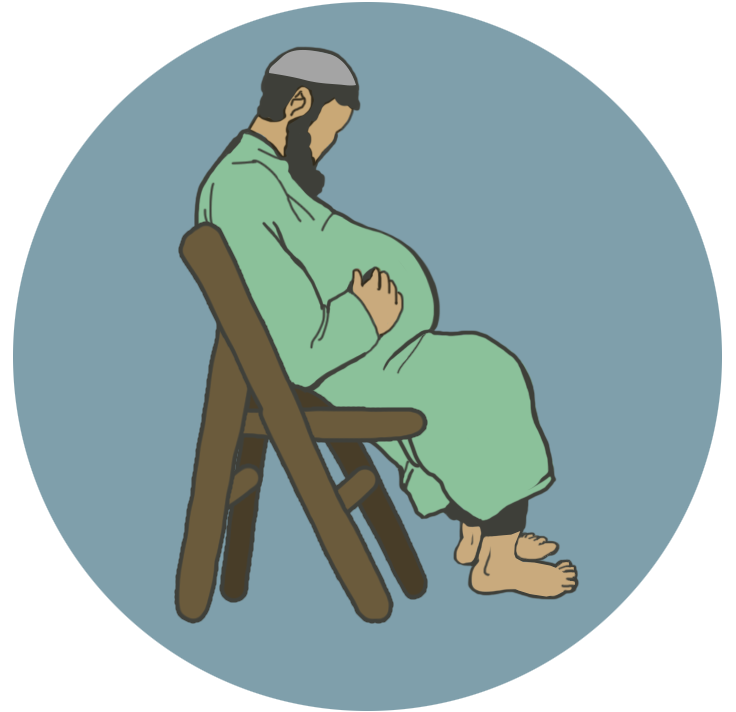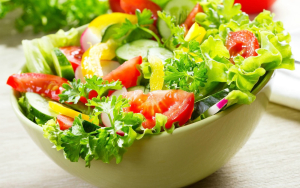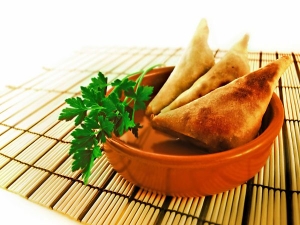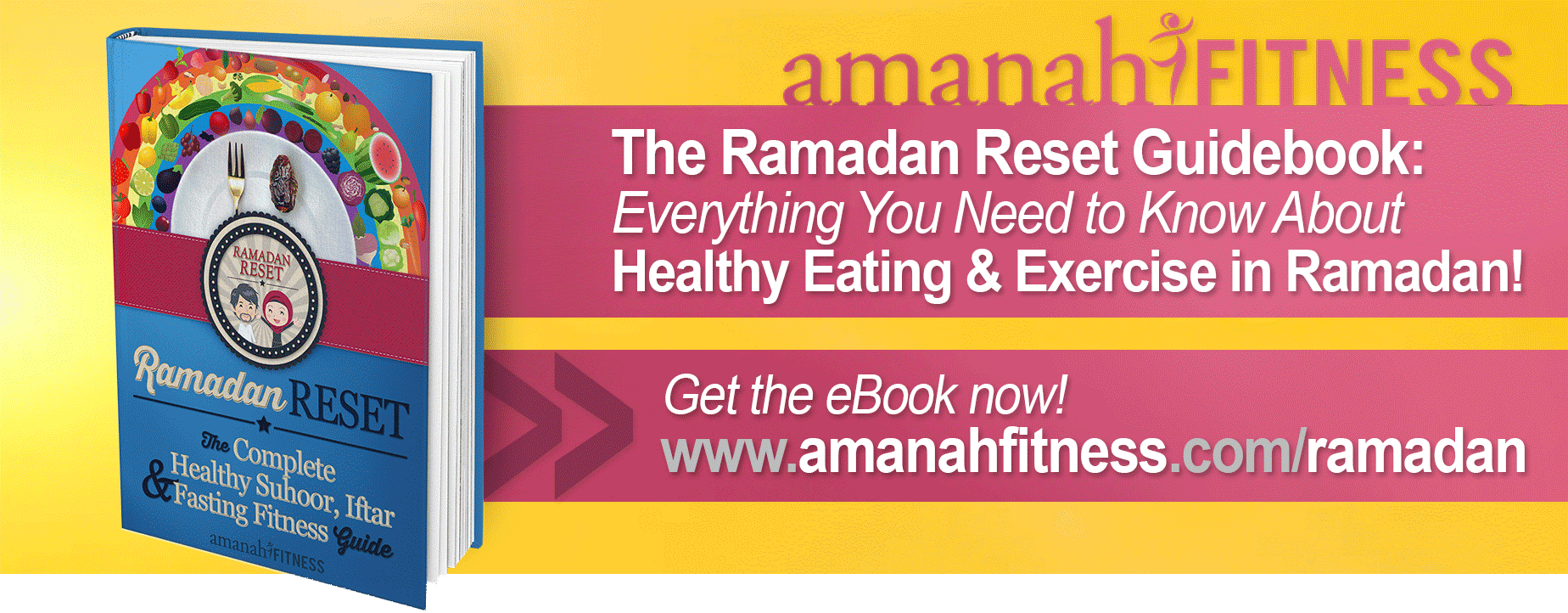
By | Uzair Khan
Alhamdulillah, the blessed month of Ramadan is upon us.
Ramadan, the time of year when we think we will automatically lose weight because of fasting, but come out of the month having gained 10 lbs.
Ramadan, the month where we think we will actually eat less, but end up eating a lot more.
Ramadan, the month where there’s an iftar party at someone’s house every Saturday and Sunday without fail.
Ramadan, the month where there’s actually a party at the family table every evening!

When you actually sit and think about it, you realize how far the current Muslim Ummah is from the actual essence of the month. Instead of the theoretical weight loss effect of fasting, most of us achieve the opposite and end up gaining weight during the month.
Since my childhood (as a person with a Pakistani decent) every Ramadan brought about the same types of foods nearly every day in my home.
Ramadan was known to be the time where on a daily basis for iftar we would eat deep fried samosas,
pakoras, Rooh-Afza (a very sweet Pakistani drink) with added sugar, sometimes deep fried meatball, and pretty much anything you can image that can be deep fried!deep fried
And to top it off, we would then eat a pretty large heavy meal, something that was usually specially prepared for Ramadan and better suited for a wedding!
As if that wasn’t enough…
For Suhoor, it would almost always be a very sweet sewaya (Vermicelli) dish, with some heavy butter covered paratha (a type of roti) and usually any left overs from the night before. I don’t doubt that this wasn’t the same story for most South Asian families out there, or any other culture.
Eating these foods became so much of a routine every Ramadan that it didn’t feel like Ramadan without them!
Having little knowledge about what I was eating and how it affected my body contributed to an almost yearly increase in weight.
Fast forward to the present, where I now realize how those foods affected me and how much calories I was actually consuming, I have drastically changed my habits in an effort to maintain a balance in my health during this blessed month.
Now don’t get me wrong, Ramadan shouldn’t actually be about food. Food consumption is really the last thing you should be worrying about in Ramadan. The focus of the month should be more on worship, remembrance of Allah, doing good deeds and an overall focus on self-restraint as we see from many examples of the Prophet of Allah (Peace Be Upon Him).
However, our focus on worship does NOT mean that we totally neglect what we eat.
We still need to think about maintaining a sense of balance while at the same time getting the full effect of the month spiritually. My general rule for this month is not to go all out and put 100% effort on my diet and on the flip side not to let go fully and eat whatever I want either.
The key is finding the balance in between.
In the past, I was naïve to think that I could control everything I ate during this month. As we all know, this becomes exceedingly difficult during Ramadan. There is a large emphasis culturally and religiously on inviting others to break fast with you and to attend parties. Many hosts get offended if you don’t eat everything they serve. If you are like me, weekends are usually full of iftar parties crammed into this one month which makes it all the more difficult.
So how do we maintain balance?
There are 2 ESSENTIAL Steps for Muslims to maintain and sustain their health this Ramadan, inshAllah.
1. First Step: REALIZE that the way many Muslims eat during Ramadan is KILLING US.
Just because you are breaking a fast doesn’t mean you neglect the suggestion of the Prophet (peace be upon him) to fill your stomach with 1/3rd food, 1/3rd water and leave the last 1/3rd empty. Too often because our eyes are bigger than our stomachs at the time of breaking fast, do we think that we should fit as much as possible into our stomach.
Some us will think: “But I need to eat enough at iftar to last me the next day because I actually am not going to wake up for suhoor!”
Realize that food does not just “sit” in your stomach for 24 hours.
By going against the Sunnah, you are pretty much asking for fat gain.
Most of us sleep right after we eat (especially in these long summer fasts). Most of the foods many Muslims eat are generally poor choices. When we sleep, we give our bodies no opportunity to burn through the huge
meal we ate.
Then, many of us spend the next fasting day sitting or lying down in an attempt to “conserve energy”.
No WONDER so many Muslims gain weight during Ramadan – we eat MORE calories than ever, yet move LESS and BURN LESS calories than usual, as well, because we have the mistaken idea that we need to “conserve” our energy!!
And, to make matters worse, even after bingeing at iftar, when you skip your suhoor, you are STILL going to feel hungry the next day.
So you pig out at iftar, skip suhoor, feel STARVING all day, and then you STILL gain weight.
What are we doing to our bodies in this blessed month?!
The Sunnah is to eat 2 meals a day in Ramadan, one at iftar and one at suhoor, and we all know there is a lot of wisdom behind this.
If we minimize the food we eat at iftar time by using the example from the Sunnah, we will eat just enough that we can digest our meal properly throughout the evening.
Then, we will actually be hungry and motivated to eat once again at suhoor, to give us lasting energy for our fast.
As Muslims, we have to realize that our unhealthy habits are making the fasts HARDER for ourselves than they need to be.
When we pig out at iftar and skip suhoor, we are forcing our bodies to sustain us while fasting with the energy from one massive, nutrient-poor iftar “feast”.
Instead, the Sunnah is to have two smaller meals, which provide nutrients to our bodies before and after a long fast, when we really need it most.
Once we realize that we MUST apply balance to our meals in Ramadan, we can get started to make positive changes, inshAllah.
2. Second Step: Create a strategy to ENJOY your favourite foods, yet in a CONTROLLED MANNER.
Yes, I know, you’re here because you want to eat that samosa.
Let’s talk about how to maintain balance this month, so you can have your favourite foods, yet still avoid fat gain, inshAllah.
The biggest key to enjoying your food in Ramadan is to ever neglect WHAT you eat and HOW MUCH you eat during this month. You should have a general PLAN for what you intend to consume, or you will never be able to realize when you are overeating.
Understand the types of foods that are good to eat for suhoor. We all know the basic “rules” that will help us get the most out of our Ramadan meals. Look for foods that digest slower in your stomach, such as whole grains and high-fibre foods and are wholesome and natural, rather than processed junk.
Remember to eat lots of veggies and drink lots of water. 
Treat suhoor as FUEL and avoid heavy and very rich foods in the morning. Avoid high starchy or high GI foods that will only give you a temporary energy boost and instead focus on “slow-digesting” foods that are lower GI that will last longer.
When you come out from a fast, you need to replenish sugar levels, but you should aim to do so with natural fruits and veggies, NOT sweet drinks like Rooh Afza or with any drinks with added sugar! We all know these principles, yet many of us stop paying attention during Ramadan.
When you are at home, you have FULL control over what you are eating and how it is prepared.
When you are at home, you have FULL control over what you are eating and how it is prepared.
Many Muslims complain about gaining weight at iftar parties
… yet they never bother to correct the food they are eating in their own home FIRST!!
For your iftar, plan to something you would normally eat for dinner outside of Ramadan. Keep salad on the table. Don’t treat every iftar like a “party meal”. Doing the opposite will only increase the chances of you gaining weight during this month. Keep in mind that food should not be the focus of this month and that there are much more important aspects that you should be focusing on.
Once you have this solid FOUNDATION, you actually have ROOM in your life to loosen up and enjoy other foods at iftar parties or OCCASSIONALLY at home—but in moderation.
Dima Al-Sayed, Registered Dietician and contributor for Amanah Fitness, advises the “Rule of One” strategy to stay in control with your favourite deep-fried foods.
When preparing fried foods, only cook ONE for each member in your household. This may seem unusual for those who are used to preparing a whole TRAY of samosas! But this one simple strategy can be a huge game changer for many families.
If you are a family of 5, only cook 5 samosas. This way, Dad can’t sneak 5 samosas onto his plate when no one is looking!
One large samosa is around 400-500 calories. This is a lot, and this is only for ONE piece. Any more than that is overkill and you will not be able to burn through all those calories without adding intensive exercise.
The “Rule of One” is a mindset change that allows you to enjoy ONE indulgence at iftar, and you don’t exceed ONE piece. This principle alone can dramatically help you stay in control during Ramadan, inshALlah… EVEN when you’re at iftar parties.
When you are at parties, eat such foods in moderation, and focus on options that are generally more nutritious or natural while keeping the 1/3rd ratio rule at the back of your mind. And if everything available to you is generally bad for you, then eat it at a minimum and don’t let yourself go all out.
eat such foods in moderation, and focus on options that are generally more nutritious or natural while keeping the 1/3rd ratio rule at the back of your mind. And if everything available to you is generally bad for you, then eat it at a minimum and don’t let yourself go all out.
These are some practical advices that I have been practicing myself over the past couple of years and have found that allowed me to maintain my weight and health during the month.
Our religion is the pinnacle of balance and moderation.
Yet too many of us exceed our limits in regards to food during Ramadan. Let’s return to the standard of balance, inshAllah, so we can focus on other aspects of the month that deserve our attention much more.
Learn everything you need to know about exercise in Ramadan by signing up for our Ramadan Reset eBook: Your Complete Guide to Your HEALTHIEST Ramadan EVER! This 100+ page eBook is an ALL-IN-ONE! It provides the essential information you need to know to truly have a successful Ramadan inshAllah – spiritually AND physically! Find out more here: www.amanahfitness.com/ramadan.
***


